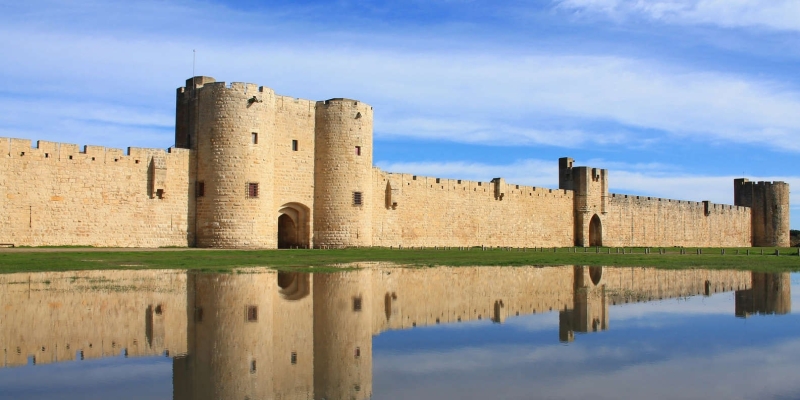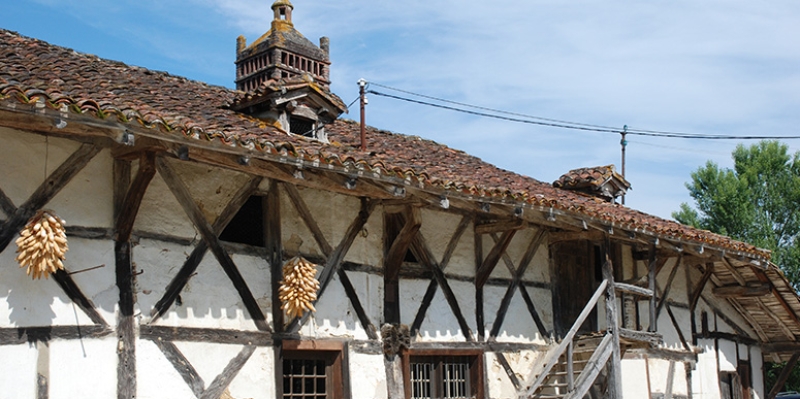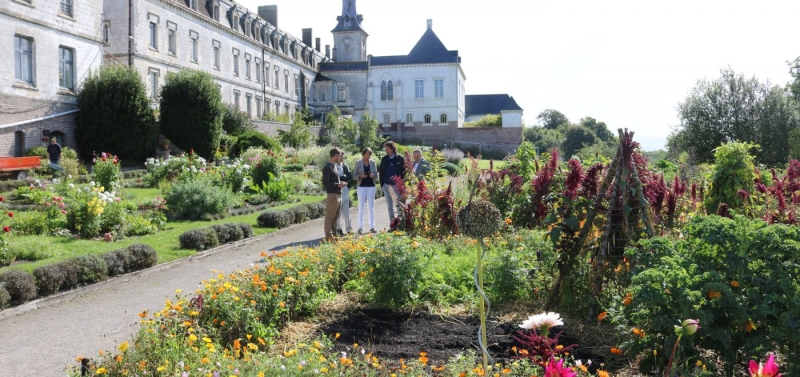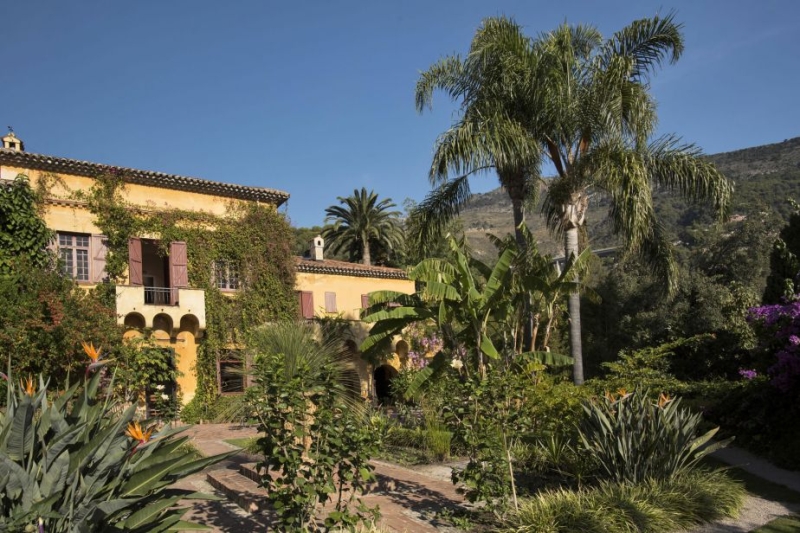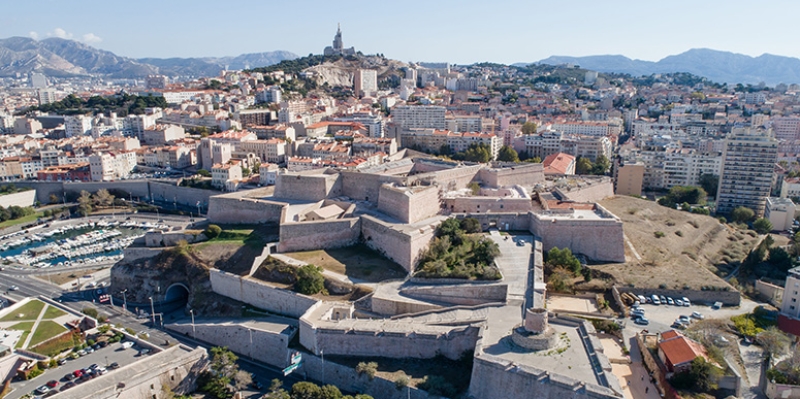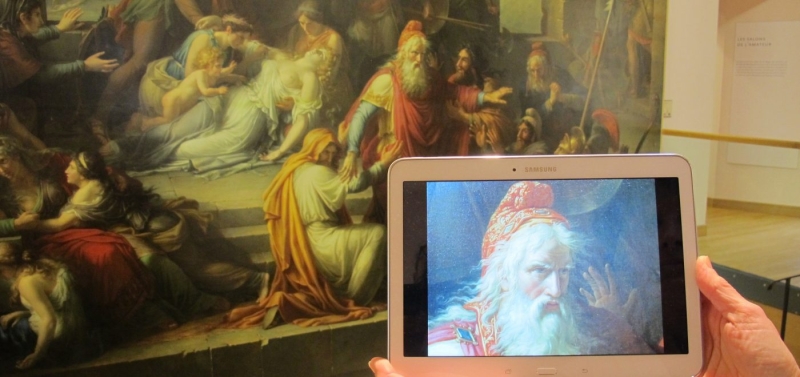- #Patronage
- 2020/08/31
- 0
-
8
Crédit Agricole Group reasserts its support for European Heritage Days
For the fifth year running, Crédit Agricole is partnering with the European Heritage Days (EHDs), organised in France by the Ministry of Culture and to be held on 19 and 20 September 2020. The Group has a long history of working to protect France’s heritage, and its involvement in this annual public event confirms its support.
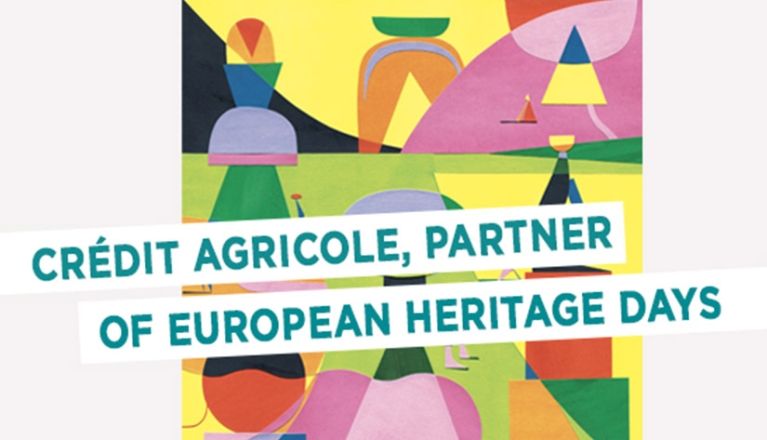
Heritage and education: learning for life!
The theme for this 37th edition of the European Heritage Days is “Heritage and education”, with a focus on highlighting initiatives to do with training, passing on knowledge, and education. French people of all ages will also be encouraged to remember both the importance of education in passing on our heritage from generation to generation and the vital role of heritage in education. This year’s EHDs are an opportunity to learn about specialist roles and areas of expertise, realise the importance of protecting our heritage for current and future generations and marvel at the artistic and architectural beauty that surrounds us.
Crédit Agricole: committed to heritage
The Crédit Agricole Group’s ambition is to make a positive difference in regional and local areas. Thanks to joint action by the 39 Regional Banks and the Crédit Agricole – Pays de France Foundation, established in 1979, Crédit Agricole runs local sponsorship schemes in support of local heritage. More than 1,400 projects have received support totalling over €42 million. The support provided is aimed at sustaining and maximising the architectural, cultural and natural heritage of France’s regions with a specific goal of helping boost cultural, economic and social vitality.
In light of the ongoing epidemic, the Ministry of Culture will be issuing detailed rules for participating sites on how to open up, based on guides developed or produced with industry bodies and approved by the Ministry for Solidarity and Health.
Discover 6 sites supported by the Group in 2019 and highlighted on the website of European Heritage Days
1. Museum space at Aigues-Mortes/Gard département, Occitanie region
As France’s leading port until the port of Marseille was established, Aigues-Mortes long had a monopoly on Mediterranean trade. Lying at the gateway to the Camargue, Aigues-Mortes is surrounded by the region’s characteristic salt marshes, making this walled city a unique military and strategic site. It has been listed as a historic monument since 9 December 1963.
To promote knowledge of the towers and city walls of Aigues-Mortes, the Centre des Monuments Nationaux is running a programme to overhaul the layout, visual design and museography of the introductory space located at the start of tours of the site. Crédit Agricole Languedoc and the Crédit Agricole – Pays de France Foundation are helping finance a scale model that will be brought to life by projections onto the model itself and the wall retracing the architectural history of the walled city of Aigues-Mortes since its foundation.
© Centre des Monuments Nationaux
2. The Sougey farm in Montrevel-en-Bresse/Ain département, Auvergne-Rhône-Alpes region
Known throughout the Ain département, the Sougey farm in Montrevel-en-Bresse is proudly adorned by a tiled roof topped by a mysterious Saracen chimney dating from 1460. The half-timbered farmhouse, listed as a historic monument, has retained its authentic character at the heart of preserved enclosed pastureland covering some 35 ha.
Since 2003, a non-profit group of 350 volunteers has been undertaking impressive renovation work to ensure that this traditional, symbolic farmhouse brings tourists to the region and can continue to serve as a place of renewal, cultural insight and learning. Restoration work on the farm is ongoing, jointly supported by the Solidarités by Crédit Agricole Centre-Est Foundation and the Crédit Agricole – Pays de France Foundation.
© Les Amis du Sougey et de la Bresse
3. Vavilov project: connected gardens in Neuville-sous-Montreuil (Pas-de-Calais) and Charly (Rhône)
Underpinned by international scientific cooperation, the Vavilov project works to protect regional agricultural biodiversity. Sponsored by a collective of French stakeholders, the project is committed to studying and replanting ancient fruit and vegetable varieties provided by the Vavilov Institute in Saint Petersburg. In particular, the project is undertaking research into how crop plants might be adapted to cope with the effects of climate change and what nutritional potential such crops might offer.
Alongside this scientific aspect, the cooperative project is creating a network of connected gardens in France. The role of these gardens is to educate and raise public awareness and help threatened varieties proliferate.
The Group is supporting the Vavilov project in France through four sponsorship schemes:
- The Crédit Agricole Nord de France Foundation and the Crédit Agricole Solidarité et Développement Foundation are supporting the Vavilov garden at the Chartreuse Notre-Dame-des-Près former monastery (listed as a historic monument) in Neuville-sous-Montreuil (Pas-de-Calais);
- The Crédit Agricole Solidarités by Crédit Agricole Centre-Est Foundation and the Crédit Agricole – Pays de France Foundation are supporting the creation of an agronomic experimentation station in Charly (Rhône).
© De Natura
4. Villa at the “Val Rahmeh” exotic garden in Menton/Alpes-Maritimes département, Provence-Alpes-Côte d’Azur region
The “Val Rahmeh” villa is home to an exceptional exotic garden with a collection of over 1,500 plant species. Menton’s climate is particularly mild and sunny, even in winter, with regular moisture. These conditions provide a haven for sub-tropical and tropical plants that would not grow anywhere else in France. Responsibility for managing the estate was entrusted to the Museum National d’Histoire Naturelle (National Museum of Natural History) in 1966.
The site is a prime location for the conservation of threatened plant species. As well as being a centre for research, this exotic garden also promotes the sharing of knowledge through a range of activities available to visitors. The overall restoration of the site will pave the way for the development of an educational programme, making the villa a centre for interpreting and raising awareness of preservation challenges facing the planet. The Crédit Agricole Provence Côte d’Azur Corporate Foundation, the Crédit Agricole – Pays de France Foundation and Crédit Agricole S.A. are supporting this work. Crédit Agricole S.A. has also been a major sponsor of the Museum National d’Histoire Naturelle since 2018.
© Museum National d’Histoire Naturelle
5. Citadelle Saint-Nicolas, Marseille/Bouches-du-Rhône département, Provence-Alpes-Côte d’Azur region
In March 1660, Louis XIV decreed that the Citadelle Saint-Nicolas be built to protect the city and remind rebellious citizens of Marseilles of his power. From the citadel overlooking the sea, the Royal Army could easily watch, bombard or blockade the city. During the French Revolution, the Citadelle Saint-Nicolas was first destroyed then rebuilt by order of the National Assembly. The Citadelle in its entirety has been listed as a historic monument since 1969.
Non-profit group Acta Vista has been working to restore the site since 2003. The group hires long-term unemployed people, offering them a path back to the working world. Staff alternate between on-the-job training and learning through educational workshops. Over 2,000 people have already taken part in the project.
The Crédit Agricole Alpes Provence Foundation and the Crédit Agricole – Pays de France Foundation are supporting the restoration of the cornerstone of the Bastion de l’Isle stronghold and its defensive wall.
© Association Acta Vista
6. Musée 3.0, Angoulême/Charente département, Nouvelle-Aquitaine region
Located right next to the cathedral, Angoulême’s museum revolves around three collections: art from Africa and Oceania, Western art, and archaeology. These collections highlight the diversity of cultures around the world and ancient times from the dinosaurs through to the mediaeval era.
Many items are now being shown in a new light: content displayed to the public is managed and updated via an app, which is also used to develop new tour routes. In addition to the audio guide, visitors are given the opportunity to view both old and contemporary archive photos, drawings, video documentaries and animated films.
The Agir en Charente Périgord Foundation and the Crédit Agricole – Pays de France Foundation are supporting the project by buying equipment used in the new layout and visual design.
© Musée d’Angoulême
To find out about other supported places, visit the Fondation Crédit Agricole – Pays de France website.

